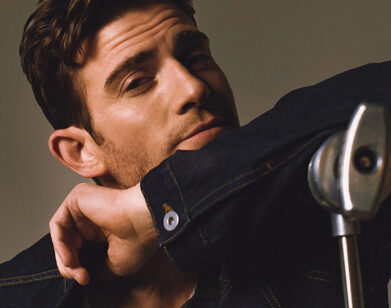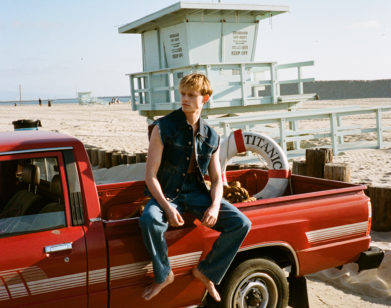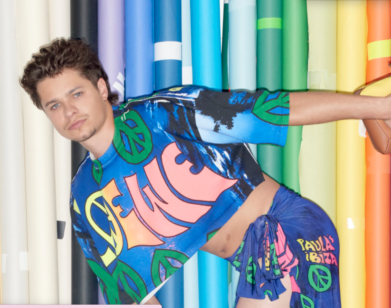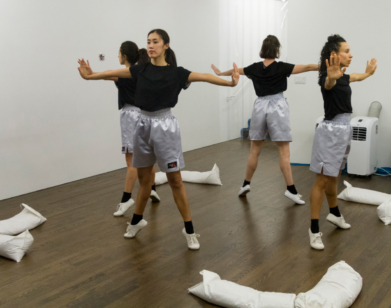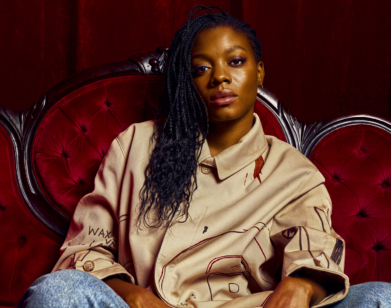APOCALYPSE
Meet Alfie Williams, the Face of the New 28 Years Later Trilogy
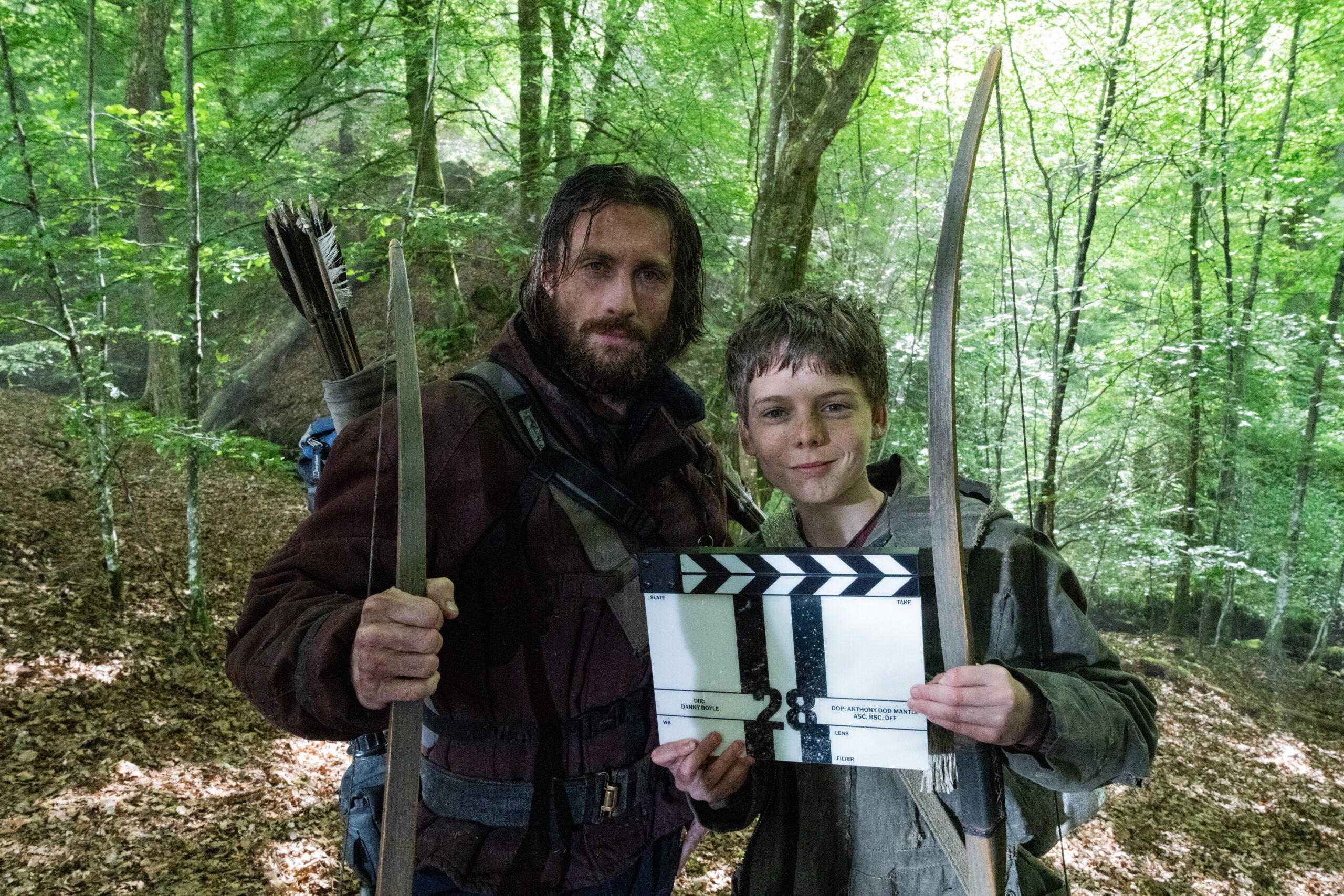
Aaron Taylor-Johnson and Alfie Willams, courtesy of Sony Pictures.
There aren’t many jobs that require someone to stand next to a swarm of naked zombies while waiting for the director to yell “Action!” But for 14-year-old Alfie Williams, the precocious young star of 28 Years Later, that’s just another day on set. The British actor, who hails from Newcastle, is making his name in the latest chapter of Danny Boyle’s apocalypse saga, released over two decades after the original 28 Days Later gave the genre a much-needed jolt of energy and innovation. The sequel is gritty, intense, and at times overwhelming, but Williams handled it with ease. “I just became desensitized to them,” he says, half-laughing, of the monstrously hung zombies that populate the film.
Though he was the youngest person on set by a considerable margin, Williams was treated more like a peer than a kid by his A-list co-stars Aaron Taylor-Johnson and Jodie Comer. When we got on a Zoom call earlier this month to talk about his breakout role, witnessing Zombies give birth, and where he sees himself 28 years from now, he demonstrated that same maturity while sharing his enthusiasm for In Utero by Nirvana.
———
SIMON DWIHARTANA: Congratulations on the movie. It was amazing.
ALFIE WILLIAMS: Thank you.
DWIHARTANA: You’re incredible in it. How are you feeling coming off one of the most highly anticipated movies of the summer?
WILLIAMS: I was very nervous, but it is just so exciting to be a part of. I’ve loved every minute. I mean, even just advertising the film, it’s just been great.
DWIHARTANA: Let’s start from the beginning. How did you get this part? Is it something you ever imagined for yourself?
WILLIAMS: I got the audition from an agent and then a couple of days later I sent it back and I got a recall. It was in Newcastle, which is great because I live in Gateshead, so it was very close. I went down and I met Danny [Boyle] and already it felt comfortable. We ran through a couple of scenes and then a couple of days later I got another recall. I think this happened about four times before I got the part. But yeah, I never thought I would be doing anything like this. I’m extremely grateful to Danny and everyone on the team.
DWIHARTANA: In the movie there were a lot of wild and honestly disgusting moments on screen, infected people running around swinging their genitalia and chasing people. A lot of the crew has said how proud they are that the effects were done practically. Were you ever totally grossed out?
WILLIAMS: You get used to the infected pretty quick. I think it took a couple of days and then you could kind of ignore it and it was fine after that. But the one scene that creeped me out was the childbirth scene with the infected on the train.
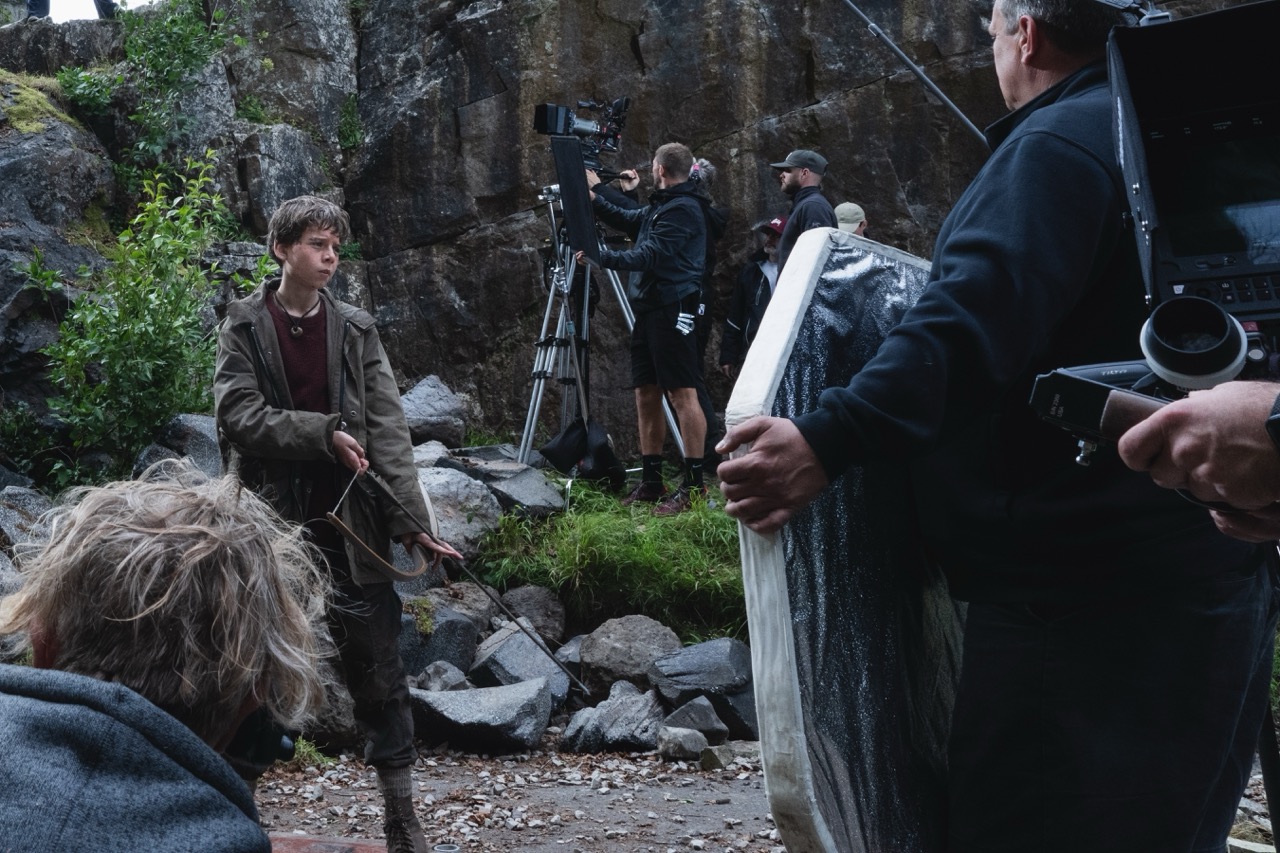
DWIHARTANA: That was pretty gnarly.
WILLIAMS: It creeped us out, but it was beautiful at the same time to see how they’re infected, but they’re still like us, because they were once humans. But I think Danny knew I was mature enough to see things like that. They did try and keep us away from it, but they were fine with us seeing stuff like that.
DWIHARTANA: Is there anything you learned on set that could guide you well for future projects?
WILLIAMS: I just wish I could go back and do it again. But I think I’ll be doing that on my next film and then the film after that. I always want to improve and get better. I can’t think of anything in particular, but I really want to keep improving and try different techniques out.
DWIHARTANA: From filming this and then the sequel, The Bone Temple, has making these movies changed the way you see other movies?
WILLIAMS: Yeah. I definitely want to see more movies in a cinema rather than watching them just on streaming services. Because when I watched the film at the premiere, it was more exciting to be with an audience and it was a really great experience.
DWIHARTANA: What is it like being the youngest person on set, working with people like Aaron Taylor-Johnson and Jodie [Comer]?
WILLIAMS: To be fair, they really looked after us. And what was great was they kind of treated me like an adult, which I know I’m not, but it felt good to not be treated as a kid. So it was very easy to fit in with them because they were so nice and caring.
DWIHARTANA: That’s cool. I have a fun little question. What are the four movies you’d bring with you in an apocalypse?
WILLIAMS: I think you need comedy movies, especially in those kinds of times. Step Brothers–I can’t think of any other ones. Just comedies. I wouldn’t really watch any dramatic and serious ones because you could just go outside for that.
DWIHARTANA: Totally. To flip that question a little bit, what are some movies that you were completely traumatized by that you would never watch again?
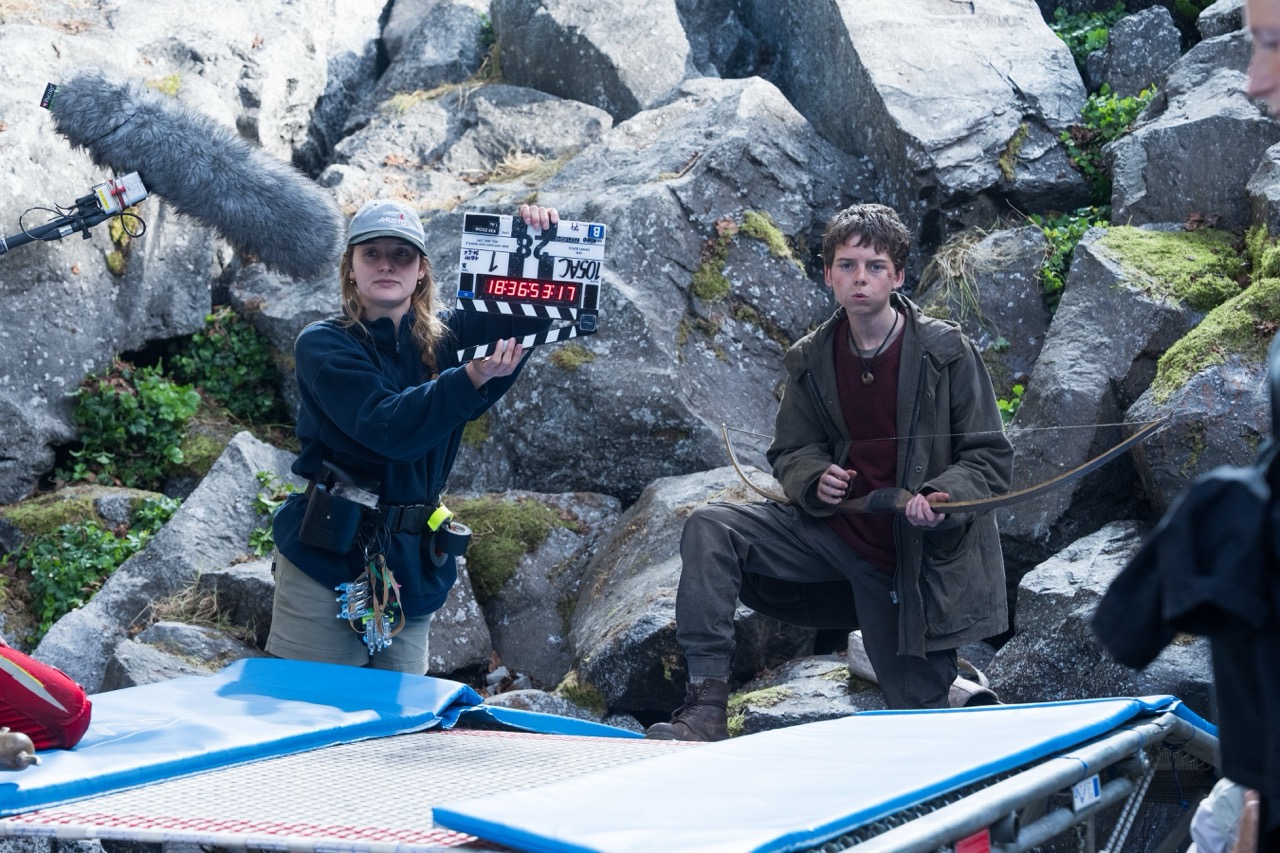
WILLIAMS: I watched The Thing when I was like, 10 or something. That creeped us out because when things aren’t CGI they look so real. That’s what makes this movie so scary as well. But other than that, I’m just so desensitized to horror because that’s what happens when you watch horrifying things from a young age. They just get easier to watch.
DWIHARTANA: That’s true. Have you started feeling the effects of fame? Has anyone stopped you in the middle of the street?
WILLIAMS: I’ve got no stalkers yet but I mean, it is still very weird to see myself on buses and things. But it’s really great. My friends and family are so proud of this. And again, I’m very grateful.
DWIHARTANA: Where do you hope to see your life or your career 28 years from now? Are there any actors that you look up to as a blueprint, any franchises you’d love to be a part of?
WILLIAMS: I’d love to do a Western one day. There’s a film called Young Guns and I’d love it if they made a remake one day to play Billy the Kid. That would be amazing. But I’m going to keep going and see what the future holds.
DWIHARTANA: Are there any actors that you’re particularly inspired by?
WILLIAMS: There’s a couple. Andrew Garfield, J.K. Simmons. I like Brian Cranston, Karl Urban, and other actors like that.
DWIHARTANA: I’ve heard that a lot of people are very confused by the movie’s ending. What are your thoughts?
WILLIAMS: It sets up the second one. People think it’s a standalone film, which it’s not. It’s introducing the characters for the second film, but a lot of people don’t get that and they speak before they think.
DWIHARTANA: I definitely need to ask about the sequel because you shot these movies back to back, but with a different director, Nia DaCosta, who did The Marvels and Candyman. What was that like? Was there a vibe shift?
WILLIAMS: It was very different, but in a great way. I got to see the different styles of directing. But Nia, she’s absolutely fantastic. We had really good chemistry. I absolutely enjoyed the second one, it’s very gruesome and intense. But I had a great time.
DWIHARTANA: If there was a playlist that would remind you of this whole experience, what songs would be in it?
WILLIAMS: I don’t know what Spike would listen to. I only know what I would listen to and it is only going to be my music taste. But I’m just going to say probably In Utero by Nirvana, that’s my music taste. But the actual music for 28 Years Later is by Young Fathers, and that does a fantastic job of showcasing Spike’s journey and Spike’s family as well. It really is the perfect soundtrack.

